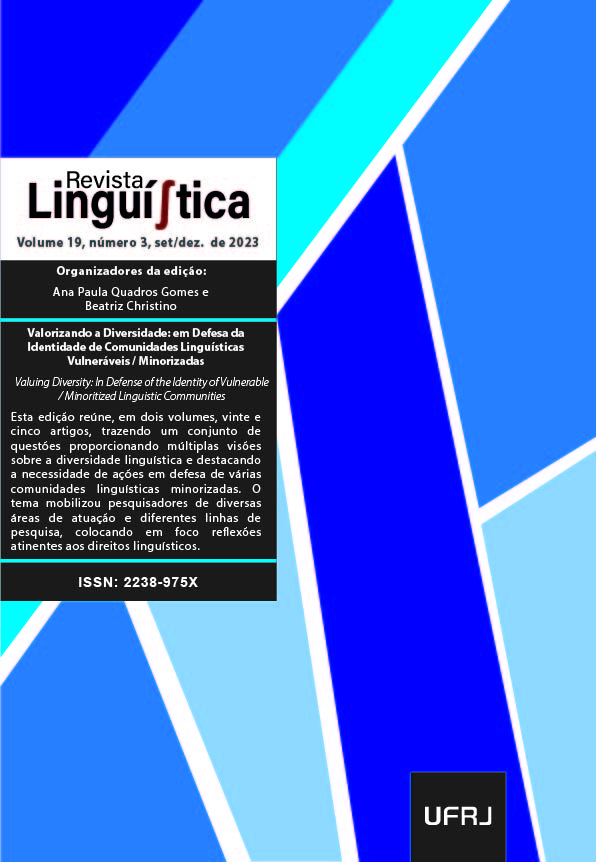The others of the others: reflections on a counter-discriminatory approach to border schools
DOI:
https://doi.org/10.31513/linguistica.2023.v19n3a60282Keywords:
Fronteira. Escola. Cultura. Colonialidade. Diferença.Abstract
This article aims to analyze the relationship between Brazilian and Uruguayan border students in municipal schools in Jaguarão/RS. According to current legislation, in twin border cities, Uruguayan borderers, supported by Law 13.445 of May 24, 2017, are allowed to study and work in the bordering country. Throughout the text, the border between Jaguarão and Rio Branco will be seen as a place of encounters and disagreements, which although it is seen as a plural territory, the Brazilian national culture, in certain spaces, standardizes and classifies certain groups as Others, those who do not follow the established social standards or who belong to social classes, races, cultures and ethnicities, considered inferior. Methodologically, we adopted a case study perspective, in which, in a first moment, we will analyze the documents that govern the municipal education of Jaguarão, through its Municipal Education Plan, in a second moment, we will present some observations made in three municipal schools of Jaguarão and, in a third moment, we will analyze these observations, in order to problematize the relationship between Brazilians and Uruguayan borderers in the school context. Finally, analyzing the municipal schools of Jaguarão and looking at Uruguayan borderers as subjects Others of the Others, opened ways to think about the different positions we occupy in society and that these are not fixed.
Downloads
Published
Issue
Section
License
Copyright (c) 2024 Revista Linguí∫tica

This work is licensed under a Creative Commons Attribution-NonCommercial 4.0 International License.
Authors who publish in the Revista Linguí∫tica agree with the following terms:
The authors maintain their rights, ceding to the journal the right to first publication of the article, simultaneously submitted to a Creative Commons license permitting the sharing with third-parties of published content as long as it mentions the author and its first publication in the Revista Linguí∫tica.
Authors may enter into additional agreements for the non-exclusive distribution of their published work (for example, posting in online institutional or non-profit repositories, or book chapters) so long as they acknowledge its initial publication in the Revista Linguí∫tica.

The journal Revista Linguí∫tica is published by the Post-Graduate program in Linguistics of UFRJ and employs a Creative Commons - Attribution-NonCommercial 4.0 International (CC-BY-NC).









